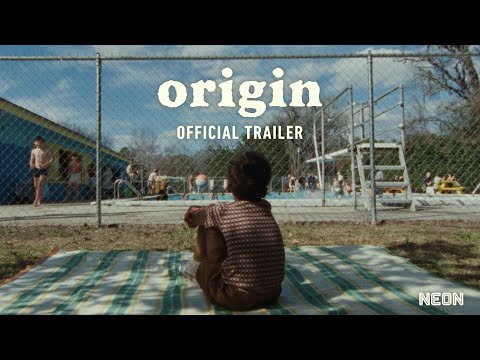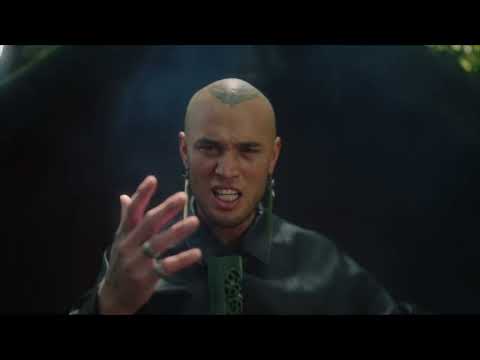Ava DuVernay’s “Origin” is an audacious epic about where the root of racism lies, how it has continued to manifest itself for centuries and why we have a responsibility to recognize and not allow it to continue.
Based on “Caste: The Origins of Our Discontent” the 2020 bestselling book by Isabel Wilkerson, this film adaptation stars Aunjanue Ellis-Taylor as Wilkerson and is about the creation of the book and the forming of her thesis.

The story begins with the killing of Trayvon Martin, though the incident ultimately becomes a smaller part of the narrative’s overall design. Wilkerson is introduced as a Pulitzer Prize-winning writer who is urged by a colleague (an always welcome Blair Underwood) to write about the Martin case.
It spurs Wilkerson to not only dig far beneath the surface of the incident but to investigate the historical connection of how caste systems, ranging from the U.S. to Germany and India, have created environments where outsiders are controlled and deemed lesser than by those around them.
We watch as Wilkerson journeys far outside of her comfort zone to learn the backbone of her thesis (she travels alone to distant lands while her personal life at home is in a fragile state).
Ava DuVernay has been disappointed that "Origin" and its star Aunjanue Ellis-Taylor haven't been recognized during Hollywood's awards season so far, but says: "Time will reward the film for its merits." pic.twitter.com/YqnrV5wDmP
— AP Entertainment (@APEntertainment) January 18, 2024
I’ve come full circle with how I feel about DuVernay, whose 2014 Dr. Martin Luther King Jr. historical drama, “Selma,” was a masterpiece (and under-promoted by its studio). Showcasing a terrific lead performance by David Oyelowo as Dr King and directed with confidence and fire by DuVernay, it wound up one of the last films to sneak into its calendar year and emerged a potent, engrossing look at its subject.
Unfortunately, DuVernay followed it up with the awful “A Wrinkle in Time” (2018), an oversized failure that just didn’t work.
“Origin” is another massive undertaking, and it certainly works. As a filmmaker, DuVernay has once again put all her cards on the table and made a work that demands to be discussed and pondered.
The temptation I wrestled with for much of the film was to dismiss it as overly didactic and self-congratulatory. “Origin” is a lot to take in and will be too much for some.
Since the film is so dialog and idea driven, I wondered why DuVernay didn’t simply make the subject into a documentary?
Considering DuVernay’s impactful prior documentary “13th”(released in 2018 and exploring prison systems), the format may have provided an easier means of compartmentalizing all of Wilkerson’s insights and discoveries.
In addition to flashbacks portraying key moments from Wilkerson’s life, there’s also scenes depicting segregation in the south, the rise of Nazism in Europe and current human horrors taking place in India.
A lengthy discussion is had comparing the suffering of African-American slaves to Jews during the Holocaust. There’s also a montage with graphic, horrifying reenactments of an African slave ship interspersed with the Holocaust.

There’s a moment where a woman explains how revealing her name resulted in a painful exchange – why wasn’t this depicted? There are times when the multiple flashbacks look less than vivid reenactments and scenes from movies – a Nazi book burning looks oddly like a similar scene from “Indiana Jones and the Last Crusade” (1989).
On the other hand, a sequence involving a little league team finding one of its teammates enduring inexcusable behavior in broad daylight is harrowing.
An inspired touch was having Harvard scholar Dr. Suraj Yengde play himself. The central plotline of Wilkerson’s journey gets a lot of mileage not just from Ellis-Taylor’s impressive performance but from successfully depicting her romance with her husband Brett (a scene-stealing Jon Bernthal).
On the other hand, a single scene with Nick Offerman as a MAGA hat wearing plumber gets points for not going the way one would expect, but does the movie really need it? Isn’t the film already overloaded with provocative topics and material?
As a film exploring the pain inflicted by racism and the hope that a new generation can rise above it, this reminded me a little of Lawrence Kasdan’s insightful, messy “Grand Canyon” (1991).
“Origin” is sometimes like sitting next to a scholar at a coffee shop while they verbalize a lengthy thesis statement. Everything comes together compellingly in the third act, and I concluded the film engrossed and exhausted by what it has to say.
Is it entertaining? Indeed, it is, as well as made with passion and urgency. DuVernay’s film can be frustrating and overwhelming, but I found it a challenge worth taking and discussing at length afterward.
Three Stars
The post ‘Origin’ Lets Ava DuVernay Explore Racism, Hope appeared first on Hollywood in Toto.
from Movies - Hollywood in Toto https://ift.tt/dbxI3Ja

No comments:
Post a Comment